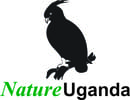Forests and wetlands degradation and it’s impacts on herpetofauna and other wildlife

NatureUganda organized a public talk on Thursday, 3rd October 2024, focusing on the topic “Degradation of forests and wetlands has significant impacts on species: A case for herpetofauna (reptiles and amphibians).” The event took place at Makerere University. The keynote address was delivered by Professor Luca M. Luiselli, an Ecologist and Conservation Biologist, globally renowned for his expertise in turtles and tortoises. He is also the Chief Editor of the African Journal of Ecology.
In his presentation, Professor Luca raised critical points about the current environmental situation in Uganda, particularly concerning biodiversity. While acknowledging that the situation in Uganda is dire, he noted that the country is not faring worse than others in Africa. However, he emphasized that the impacts of forest and wetland degradation are catastrophic, not only for biodiversity but also for the economy.
One of the key aspects highlighted by Professor Luca was the need for sustainable land-use practices, especially in agriculture, which is the most widespread cause of land-use change in Uganda. He pointed out that over half of Uganda’s wetlands have been damaged due to this practice. Despite the frequent talk of restoration, Professor Luca cautioned that experience has shown that even after restoration efforts, it is nearly impossible to return ecosystems to their original state.
Professor Luca drew upon examples from his research in Nigeria, where his team studied four distinct plots; A mature forest plot, a recently burnt forest plot, a recovering plot 12–18 months after fire, and a recovering plot more than 3 years after fire. The results from these plots demonstrated the stark differences in species richness between well-preserved and degraded habitats, serving as an example of how much damage habitat destruction causes. Professor Luca linked these findings to similar challenges in Uganda, explaining that this serves as a warning about the impacts of habitat devastation.
He also pointed out the role of the oil and gas industries in contributing to environmental degradation, stating that such companies need to take responsibility for their impacts. He proposed that they should give back to the environment by funding conservation efforts and research.
The public talk provided an eye-opening perspective on the urgent need for sustainable environmental management, with herpetofauna as a case study. Professor Luca’s insights emphasized the importance of looking beyond restoration and addressing the root causes of habitat destruction. The event was a vital step toward raising awareness and fostering action to preserve Uganda’s rich biodiversity.
- Presentation (PDF) >> Download here
Related Posts
Recent Posts
Safeguarding Uganda’s Only Breeding Population of Rüppell’s Vultures
Culture, Traditional Knowledge and Uganda’s Wetlands: Insights from the World Wetlands Day 2026 Public Dialogue
Annual Planning Meeting Sets the Course for Conservation Action in 2026
All Categories
- capacity building (1)
- Conservation and Development (36)
- Eco-tourism (6)
- Education and Awareness (15)
- Forests (13)
- Gorvenance (2)
- Habitats (14)
- membership (2)
- Nature walk (3)
- People (10)
- Projects (13)
- Public dialogue (10)
- Research and Monitoring (23)
- Sites (6)
- Species (14)
- Wetlands (17)
- Wildlife (10)




